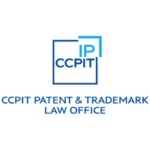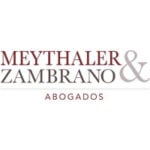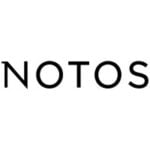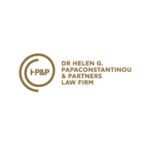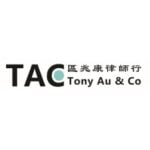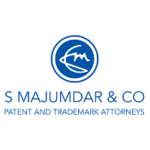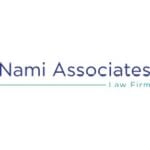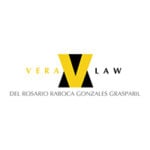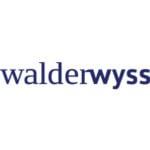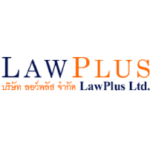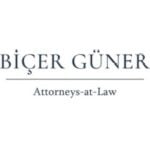-
What different types of intellectual property rights exist to protect: (a) Inventions (e.g. patents, supplementary protection certificates, rights in trade secrets, confidential information and/or know-how); (b) Brands (e.g. trade marks, cause of action in passing off, rights to prevent unfair competition, association marks, certification marks, hallmarks, designations of origin, geographical indications, traditional speciality guarantees); (c) Other creations, technology and proprietary interests (e.g. copyright, design rights, semiconductor topography rights, plant varieties, database rights, rights in trade secrets, confidential information and/or know-how).
(a) Inventions (e.g. patents, supplementary protection certificates, rights in trade secrets, confidential information and/or know-how);
Patents
Inventions satisfying patentability requirements in Malta can obtain patent registration protection by virtue of Chapter 417 of the Laws of Malta, the Patents & Designs Act. Malta is also party to the European Patent Convention and the PCT, Patent Cooperation Treaty. SPC, Supplementary Protection Certificates can also be obtained in Malta solely in relation to medicinal and plant products. SPCs extend the ultimate term of a patent to compensate for the time spent in obtaining regulatory clearance for a patent.
Trade Secrets
There are also measures protecting confidential information through tort law and trade secrets. Malta has also transposed the Trade Secrets Directive into Maltese law.
(b) Brands (e.g. trade marks, cause of action in passing off, rights to prevent unfair competition, association marks, certification marks, hallmarks, designations of origin, geographical indications, traditional speciality guarantees);
Trademarks
The registration of Trademarks has long been catered for under Maltese law. Chapter 596 of the laws of Malta, the Trademarks Act (2019) transposed the mandatory provisions of the EU’s Trademark Directive 2015/2436 (TMD). The EUTM Regulation 2017/1001 is also directly applicable in Malta and therefore a registered EUTM is also recognised in Malta as an earlier right by virtue of the Trademarks Act. Trademarks under both National Legislation and EU regulations may be collective or certificate marks.
Geographical indications, designations of origin and denominations of origin can also obtain protection under separate legislation (not the Trademarks legislation) and strictly speaking are not defined as IPRs.
Unfair Competition
Maltese law also provides protection from passing of for unregistered marks, names and distinctive devices from similar marks capable of causing confusion under the provisions relating to unfair competition under Chapter 13 of the laws of Malta, the Commercial Code.
(c) Other creations, technology and proprietary interests (e.g. copyright, design rights, semiconductor topography rights, plant varieties, database rights, rights in trade secrets, confidential information and/or know-how).
Copyright
Author’s moral and economic rights are protected by virtue of Chapter 415 of the laws of Malta, the Copyright Act. The act caters for literary works (including computer programs) as well as artistic works, audiovisual works, musical works and databases. The sui generis database right provided by the Database directive is also transposed in the same act. The act also provides for the sui generis right of semi conductor product topographies.
Malta is also party to the Berne Convention, the Universal Copyright Conventions, the TRIPS agreement and the WIPO Copyright Treaties (the WPPT and the WCT).
Other creations, technology and proprietary interests (e.g. copyright, design rights, semiconductor topography rights, plant varieties, database rights, rights in trade secrets, confidential information and/or know-how).
Designs
Registered design protection can be obtained by virtue of a national design registered in terms of Chapter 417 of the laws of Malta, the Patents and Designs Act or a community design registered by virtue of the Community Design Regulation 6/2002. The latter also caters for the EU unregistered design right which is also applicable in Malta.
Plant variety rights are granted in Malta by virtue of the European procedure in this regard.
Plant variety rights are not categorised by Maltese law as intellectual property rights at present, and they do not fall within the remit of the Industrial Property Registrations Directorate (IPRD). They are, nevertheless, given a form of recognition and protection.
Trade Secrets
Official protection for Trade Secrets was introduced in Malta following an EU wide harmonisation measure in the form of Directive 2016/943/EU on the protection of undisclosed know-how and business information (trade secrets) against their unlawful acquisition, use and disclosure. The Trade Secrets Act, which came into force in May 2019 seeks to protect information which fulfils a list of requirements relating to the requirement of secrecy, commercial value, and a series of reasonable steps undertaken to ensure the secrecy of such information.
-
What is the duration of each of these intellectual property rights? What procedures exist to extend the life of registered rights in appropriate circumstances?
Trademarks: A Malta registered trademark is valid for a period of ten years and can be renewed indefinitely for periods of ten years at a time.
Unfair competition: The rights granted to prevent passing off through unfair competition do not have a particular set duration at law and the subsistence of the right or otherwise has to be determined on a case by case basis.
Copyright: The date of expiration of copyright for literary, musical or artistic works and a database is seventy years after the end of the year in which the author dies, irrespective of the date when the work is lawfully made available to the public. With regard to audiovisual works, copyright expires seventy years after the end of the year in which the last of the following person dies: the principal director, the author of the screenplay, the author of the dialogue and the composer of music specifically created for use in the audiovisual work.
Neighbouring rights: Have a duration of seventy years from the end of the year in which the fixation of the work was first lawfully published or first lawfully communicated to the public, whichever is the earlier, in accordance with the Term Directive.
Designs: Registered design rights last for a period of five years from the date of filing of the application. The right holder may have the term of protection renewed for one or more periods of five years each, up to a total term of twenty-five years form the date of filing. The Unregistered Design Right will last, according to EU law, for a period of 3 years.
Patents: The term of a patent lasts 20 years from the filing date of the application. It is also possible to apply for a Supplementary Protection Certificate (SPC) which has the effect of extending the term of a patent. The duration of an SPC commences at the expiry of the term of the patent and continues to have effect for that period equal to the period elapsed between the first day of the sixth year following the date of the application for a patent and the date of the first authorisation to place the product on the market in Malta or in any other country with which the Government of Malta has reciprocal or international agreements on supplementary protection certificates. However, the period lapsed as aforesaid shall in no case exceed five years. For the purposes of calculating the duration of the SPC, account shall be taken of a provisional first marketing authorisation only if it is directly followed by a definitive authorisation concerning the same product.
Trade Secrets have no expiry as such, as long as the applicable requirements subsist. Under the appropriate conditions trade secrets can be maintained for an unlimited period of time.
Renewal of registration
With regard to each registrable intellectual property right (IPR), different renewal procedures exist for each IPR. These are fairly standard, in that, a renewal application must be filled in and filed, whether manually or online. Renewal fees, or in the case of patents maintenance fees, must be paid accordingly. A renewal notification is usually sent to the IPR owner by the Maltese IPRD.
-
Who is the first owner of each of these intellectual property rights and is this different for rights created in the course of employment or under a commission?
Trademarks: The owner of a trademark is the person who registers the mark in their name.
Unfair Competition: The holder of the rights granted by virtue of the provisions preventing the subsistence of unfair competition would depend on the reputation associated with such a holder and again this would depend on an analysis carried out on a case by case basis.
Copyright: Under the Copyright Act, the first owner of copyright is the author or the joint authors, as the case may be. With regard to computer programs and databases which are made in the course of the author’s employment, in the execution of one’s duties or following the instructions given by the employer, the economic rights conferred by copyright are transferred ex lege to the employer, subject to any agreement between the parties excluding or limiting such transfer. In respect of other works eligible for copyright created pursuant to a contract of service or employment, in the absence of an agreement to the contrary between the parties, the copyright shall always initially vest in the author or joint authors.
When semiconductor product topographies are created in the course of employment, in the execution of one’s duties or following the instructions given by the employer, the rights conferred upon such semiconductor product topographies are transferred to the creators’ employer, subject to any agreement between the parties limiting or excluding same.
Designs: A registered design is a property right obtained by the registration of the design conferring on to the proprietor of a registered design the rights and remedies provided by Maltese law.
Patents: The right to a patent shall belong to the inventor or his successor in title. Joint inventors shall, unless they agree otherwise, have equal rights and where the application for a patent is made by two or more persons jointly, a patent may be granted to them jointly. With regard to patents created in the execution of a commission or a contract employment, the Maltese Patents and Designs Act provides that the right to a patent for that invention shall belong, in the absence of contractual provisions to the contrary, to the person having commissioned the work or to the employer.
Trade Secrets: The law refers to a “trade secret holder” which is defined as any natural or legal person lawfully controlling a trade secret. This is to be read in conjunction with other articles which define unlawful acquisition of a trade secret in order to correctly determine whether a particular trade secret holder can qualify for the definition which is set by law.
-
Which of the intellectual property rights described above are registered rights?
Trademarks, patents, (registered) design rights, supplementary protection certificates are registrable. Copyright, trade secrets and the unregistered design right are unregistered rights.
Geographical indications and designations of origin also have their own registration processes – however Maltese law does not categorise them as intellectual property rights at present, and they do not fall within the remit of the IPRD. The same can be said about plant variety rights.
-
Who can apply for registration of these intellectual property rights and, briefly, what is the procedure for registration?
Any person (individual or legal person) can apply for the registration of the IPRs mentioned in question 4 above. The procedure for registration will always involve the filling of an application which must be in line with the basic legal requirements and accompanied with the payment of the prescribed fee. Trademark and design right applications must include the relevant classifications for the goods and services covered. Since Malta is a member of the Paris Convention, priority filings may be made or claimed in Malta – until date of writing, there are no additional costs related to the claiming of priority when filing applications.
With regard to trademarks, the IPRD has now moved away from an examination based on relative grounds and only conducts an examination on absolute grounds. A period reserved for oppositions to registration has also been introduced which has to be exhausted before the registration of a trademark is completed.
In the case of patent applications, the IPRD does not carry out a substantial examination of the application.
Applications for registration of an IPR may be filed in paper format or online, with more and more applications being filed online. Different application fees, depending on the relevant IPR being filed, are due accordingly.
-
How long does the registration procedure usually take?
The registration process varies according to the type of IPR being filed. The trademark office has transitioned from conducting both a relative and absolute grounds examination to an examination based solely on absolute grounds. It is therefore expected that the previous 4-6-month time frame for registrations will be reduced somewhat although one is to consider that following publication of an application, 60 working days are reserved for the opposition period, upon the lapse of which a trademark may proceed to registration. With patent applications, as long as all required documents are filed, the process will last eighteen (18) months. Design right applications have recently sped up and the process lasts between 1-3 months.
-
Do third parties have the right to take part in or comment on the registration process?
With respect to trademarks, an opposition procedure has been introduced which subsists for 60 working days from the publication of a trademark application. Following registration, parties may also seek invalidations on the grounds provided at law.
-
What (if any) steps can the applicant take if registration is refused?
Applicants will have the right to appeal the decision refusing registration. Appeals will have a suspensive effect on the application.
-
What are the current application and renewal fees for each of these intellectual property rights?
Trademarks
The current fee which would be due for a trademark application is €115 per trademark per class of goods or services. In order to renew a trademark, the fee of €90 is due.
Registered Designs
The application to register a design must be accompanied by the prescribed fee of € 46.59, plus €11.65 for every additional design. An application for the renewal of the term of protection upon expiration of five years, carries a fee of €34.94. There is an additional fee payable when the fee is paid within six months after the expiration of the 5-year term.
Patents
The fee for filing a patent application is currently €58.23. This must be paid together with the fee of €58.23 in order for a patent to be granted. Therefore, the total fee to apply for a patent is €116.47.
Maintenance fees are as per the below:
before the expiration of the 2nd year from the filing date, in respect of the 3rd year €34.94 before the expiration of the 3rd year from the filing date, in respect of the 4th year €46.59 before the expiration of the 4th year from the filing date, in respect of the 5th year €58.23 before the expiration of the 5th year from the filing date, in respect of the 6th year €69.88 before the expiration of the 6th year from the filing date, in respect of the 7th year €81.53 before the expiration of the 7th year from the filing date, in respect of the 8th year €93.17 before the expiration of the 8th year from the filing date, in respect of the 9th year €104.82 before the expiration of the 9th year from the filing date, in respect of the 10th year €116.47 before the expiration of the 10th year from the filing date, in respect of the 11th year €128.12 before the expiration of the 11th year from the filing date, in respect of the 12th year €139.76 before the expiration of the 12th year from the filing date, in respect of the 13th year €141.41 before the expiration of the 13th year from the filing date, in respect of the 14th year €163.06 before the expiration of the 14th year from the filing date, in respect of the 15th year €174.10 before the expiration of the 15th year from the filing date, in respect of the 16th year €186.35 before the expiration of the 16th year from the filing date, in respect of the 17th year €198 before the expiration of the 17th year from the filing date, in respect of the 18th year €209.64 before the expiration of the 18th year from the filing date, in respect of the 19th year €221.29 before the expiration of the 19th year from the filing date, in respect of the 20th year €232.94 -
What are the consequences of a failure to pay any renewal fees and what (if any) steps can be taken to remedy a failure to pay renewal fees?
Trademarks
Technically, a renewal must be filed before the expiration of the registration, and if the registration is not renewed, the Comptroller of Industrial Property shall remove the trademark from the register. However, Maltese law provides a practical solution in that if the renewal fee has not been paid and the request for renewal has not been made within the stipulated time frame, the proprietor may renew the mark within six months from the date of expiration of the last registration provided that the request for renewal is filed on the prescribed form and is accompanied by the renewal fee and an additional (late payment) fee. If on the expiration of the last registration of a trademark, the renewal fee has not been paid and the request for renewal has not been made and no action has been taken by the proprietor within those 6 additional months, the Comptroller of IP has the power to remove the mark from the register.
Trademarks: Restoration
Maltese law also caters for the restoration of the registration of a trademark which has been removed from the register. If a mark was removed from the register for failure to renew its registration in time, the owner may, upon a request filed on the prescribed form within six months of the date of the removal of the mark and accompanied by the appropriate renewal fee and appropriate restoration fee, restore the mark to the register and renew its registration.
Registered Designs
If renewal fees to prolong the lifetime of a registered design right are not paid before the date of expiry, the design may be removed from the registry. However, the request for renewal may be made and the fee paid up to six months after the date of expiry, in which case any additional fee is also due.
Patents
A patent will lapse if a maintenance fee and any surcharge have not been paid in due time, on the date when the maintenance fee was due. When a maintenance fee has not been paid on or before the prescribed due date, it may still be validly paid within six months of that date, provided the prescribed surcharge is paid within that period.
Patents: Restoration
The proprietor of a patent who is unable to observe a time limit for filing a maintenance fee has the right to apply for the patent’s re-establishment if the non-observance in question has the direct consequence of causing the refusal of the patent application, or the refusal of a request, or the lapse of the patent, or the loss of any other right or means of redress. Such a request must be filed in writing within two months from when the cause of non-compliance is removed or within the year immediately following the expiry of the unobserved time limit, whichever is the earlier. In the case of non-payment of a maintenance fee, a period of six months is deducted from this one-year period.
-
What are the requirements to assign ownership of each of the intellectual property rights described above?
Essentially, all assignment of IPR must be executed by an instrument in writing according to Maltese law. The assignment, when the IPR is a registered one, must also be reflected in the respective register and this is usually achieved by filing the appropriate form with the IPRD.
Copyright
Copyright and neighbouring rights are assigned by an agreement in writing between the parties. The assignment may also be limited as to some of the rights enjoyed, or to a period within the term of copyright, or geographically. When an author (in relation to the original or copy of their work) or a performer (in relation to the fixation of their performance) assigns the exclusive right to authorize or prevent the rental thereof to the producer, that author or performer shall retain the right to obtain individually or through a collecting society an equitable remuneration for the rental of the said sound recording or original or copy of the said audiovisual work from the producer concerned and such right may not be waived.
Trademarks
The assignment of a registered trademark must be made in writing and has to be signed by the assignor or their personal representative. Furthermore, the assignment of a registered certification mark requires the consent of the Comptroller to be effective. The assignment may be partial and limited, such as applying to some of the goods and services, or limiting use to a particular location.
Unfair Competition
Rights granted under unfair competition are customarily transferred through a transfer of goodwill agreement. There are no specific statutory transfer requirements.
Registered Designs
The assignment of a registered design has to be made in writing and has to be signed by the assignor or his personal representative. As with other IPRs, the assignment may be partial and limited so as to apply in relation to the use of the design in a particular manner or a particular locality.
Patents
The assignment of a registered trademark must be made in writing and be signed by the parties.
Trade Secrets
There are no specific statutory requirements for the assignment of trade secrets. As long as there is a lawful acquisition of such an IPR then the assignment would be valid however, due to the complexity of trade secret and their dependence on documented procedures and knowledgeable employees, a trade secret transfer would have to be examined on a case by case basis due to the complexity when it comes to any potential enforcement of the acquisition.
-
Is there a requirement to register an assignment of any of these intellectual property rights and, if so, what is the consequence of failing to register?
Yes, for each of the registered IPRs, the law requires the registration of the assignment. The Maltese IPRD is furthermore requiring the submission of the POA to the trademark attorney filing the assignment together with notarised proof of the documentation regarding the transfer. This is being requested in order to curb bad faith or fraudulent filings.
Trademarks
The assignment of a registered trademark must be registered with the IPRD. According to the Trademarks Act, until an application has been made for the registration of the transaction, the transaction shall not have effect vis-à-vis third parties. The IPRD is furthermore requiring the submission of the POA to the trademark attorney filing the assignment together with notarised proof of the documentation regarding the transfer.
Registered Designs
The assignment of a registered design right is a transaction which must be registered with the IPRD in order to have effect vis-à-vis third parties. According to the Patents & Designs Act, in the case of an assignment of a registered design right, the details needed for the registration of said assignment are:
- the name and address of the assignee, and
- the date of the assignment.
The IPRD is furthermore requiring the submission of the POA to the attorney filing the assignment together with notarised proof of the documentation regarding the transfer.
Patents
The assignment of a registered patent must be registered with the IPRD. The assignment of a patent application or patent shall have effect vis-à-vis third parties only after entry thereof is made in the patent register.
The IPRD is furthermore requiring the submission of the POA to the attorney filing the assignment together with notarised proof of the documentation regarding the transfer.
Failing to properly register an assignment will only affect its validity vis-à-vis third parties.
-
What are the requirements to licence a third party to use each of the intellectual property rights described above?
In order to licence any of the IPRs to a third party, there has to be an agreement in writing signed by the parties. In the case where an IPR is granted to two or more persons jointly, the consent of all co-owners is needed in order to grant a licence. With regard to patents, if the proprietor files a statement with the IPRD in which he states that he is prepared to allow any person to use the invention as a licensee in return for appropriate compensation, the maintenance fees which fall due after receipt of the statement may be reduced. Licences may be granted limitedly – for example limiting territorial use.
Specifically, with regard to registered designs, in the case of the grant of a licence under a registered design, the following details must be entered into the register:
- the name and address of the licensee,
- where the licence is limited, a description of the limitation,
- where the licence is an exclusive licence, that fact,
- the duration of the licence if the same is or is ascertainable as a definite period, and
- the date on which the entry is made.
-
Is there a requirement to register a licence of any of these intellectual property rights and, if so, what is the consequence of failing to register?
For all registered IPRs, Maltese law requires that a licence is registered in order to have effect vis-à-vis third parties.
-
Are exclusive and non-exclusive licensees given different rights in respect of the enforcement of the licensed IP, and if so, how do those rights differ?
Maltese law allows for licences to either be exclusive or non-exclusive. With regard to trademarks and designs, exclusive licences grant a higher level of rights over and above the normal type of licence.
The rights and remedies of an exclusive licensee of a registered trademark of design right are concurrent with those of the IPR proprietor, and references in Maltese law to the proprietor relating to infringement are construed as applying to the exclusive license. The exclusive licensee is entitled to bring infringement proceedings in his own name against any person other than the proprietor. An exclusive licensee will have the same rights against a successor in title who is bound by the licence as he has against the person granting the licence. Moreover, an exclusive licence may provide the licensee with the same rights and remedies in respect or matters occurring after the grant of the licence as if the licence had been an assignment.
-
Are there criminal sanctions for infringement of any intellectual property rights, and if so, what are they and how are they invoked?
Yes, the infringement of certain IPRs is a criminal offence in Malta. The relevant offences are found either in the Criminal Code, or in specific titles within the chapter of law dedicated to the specific IPR.
Violation of Trademarks
The Maltese Criminal Code provides that the infringement of a trademark in specific scenarios amounts to a criminal offence classified as industrial fraud. In the main, the acts which would qualify as a criminal offence include the forging or altering of names, marks and distinctive devices, or knowingly making use of same; using a mark calculated to deceive purchasers or sells goods bearing such a mark; putting on the market goods in respect of which a distinctive trademark has been registered, after removing the trademark without the consent of the owner thereof; knowingly making, keeping or transferring to any person, any die, block, machine or other instrument for the purpose of forging, or of being used for forging, a trademark; distributing or importing for trade any goods bearing a fraudulent imitation of a mark.
Proceedings may be instituted by the Police ex officio, and on conviction, the accused may be found liable to imprisonment for a term from four months to one year.
Violation of Copyright
A copyright holder can file a complaint with the Executive Police requesting an investigation with reference to a particular set of circumstances. Criminal judicial proceedings may then be instituted however, these have to be prosecuted by the Executive Police although they can be assisted parte civile by a lawyer.
Copyright violation may be tantamount to a Criminal Offence under the Maltese Criminal Cod in the following situations:
- where a false trade description is applied to goods, when such trade description is according to the custom of trade is taken to indicate that the goods are inter alia subject to an industrial copyright. The sanction in these circumstances is a liability to imprisonment for a term from four months to one year.
- a person, in the course of trade, prints, manufactures or otherwise reproduces, or sells, distributes or otherwise offers for sale or distribution, any article or other thing in violation of the rights of copyright or has in his control any such article or other thing with a view to carrying out any of the above shall on conviction be liable to imprisonment for a term not exceeding three years or a fine between €3000 and €24000 or both.
Violation of Registered Designs
The Patents and Designs Act also provides for criminal offences related to registered design rights. According to the Act, any person who with a view to gain, or with intent to cause loss, and without the consent of the proprietor exploits a registered design may be found guilty of an offence and on conviction will be liable to imprisonment for a term not exceeding three (3) years or to a fine (multa) of not more than twenty-three thousand and two hundred and ninety-three Euro and seventy-three cent (€23,293.73). It is also an offence to make false entries onto the register of designs, and to put into circulation or distribute products falsely representing that a design is registered.
It is also an offence to use in connection with any business any device or emblem that is calculated to lead others to believe that the person is employed by or supplies goods or services to the President of Malta.
Violation of Patents
The Patents and Designs Act itself contains provisions within it which create criminal offences. According to this Act, whoever puts into circulation, or sells any item falsely representing that it is a patented shall, on conviction, be liable to a fine (multa) of not less than two hundred and thirty-two Euro and ninety-four cent (€232.94) and not more than eleven thousand and six hundred and forty-six Euro and eighty-seven cent (€11,646.87).
-
What other enforcement options are available for each of the intellectual property rights described above? For example, civil court proceedings, intellectual property office proceedings, administrative proceedings, alternative dispute resolution.
Enforcement options vary across general civil procedure, lex specialis for IPRs and alternative dispute resolution methods. More information will feature on the former two types. With regard to alternative dispute methods, Maltese law caters for mediation and arbitration generally – there have not been many IP disputes which have resorted to such alternative dispute measures. The generality of matters usually gravitate towards court proceedings. It is also noteworthy to point out that the various IP laws in Malta also allow for some degree of actions before the Comptroller of Industrial Property. These include patent revocation procedures and now also trademark oppositions. One final point of note for the time being is that with regard to patents, Malta now has its own Patent Tribunal.
Civil Procedure
Considering the contentious route, the basic enforcement options are those provided by civil procedure. Chapter 12 of the laws of Malta, the Code of Organisation and Civil Procedure provides all persons who are aggrieved with a series of provisional measures or precautionary acts that can be availed of prior to – or during an – action. Primarily these are the:
- Warrant of description
- Garnishee order
- Warrant of seizure and elevation
- Warrant of prohibitory injunction
- Warrant in procinctu
All such warrants are filed on a prima facie basis of evidence. Once a precautionary warrant is filed in court, the court shall generally immediately issue the warrant although sometimes the court may:
ask for further clarifications, order a notification to the counter party or call in both parties to hear their submissions.
If the other party objects, they must seek revocation of the warrant whether in total or in part, by application to the courts.
Without prejudice to any other right which may arise under any law, the person against whom the precautionary warrant is issued may file an application in court requesting that the precautionary act be revoked, either wholly or in part. Moreover, the person against whom the warrant is filed may request both the imposition of a penalty as well as the award of damages that may have been caused as a result of the issue of the precautionary warrant. The person against whom the warrant is filed is also given the right to insist that the applicant provides security for the payment of the penalty and damages in the event that the latter does in fact become liable to the payment thereof. It is, however, within the discretion of the court whether or not to order the applicant to give such security.
Precautionary warrants filed before the institution of proceedings on the merits of the case require an action to be instituted within the relevant time-limit as specified by law (20 days from the Court decree confirming the warrant), it shall be lawful for the other party to seek and obtain the revocation of such warrant.
Enforcement Directive
The EU’s Intellectual Property Rights Enforcement Directive was transposed into Maltese law by Chapter 488, the Enforcement of Intellectual Property Rights (Regulation) Act. Chapter 488 creates a number of other measures that rights-holders may avail of – some are similar to those existing under Civil Procedure (such as the measures preserving evidence), while others are novel to the Maltese system (such as the measures to disclose evidence).
The injured party may file an application to have recourse to these measures, with the Maltese courts now having enough experience to appreciate that such measures are to be dealt with the same urgency as the civil precautionary warrants.
For a person to avail themselves of the measures under Chapter 488, the applicant must have reasonably available evidence to support the claims made in the application. In conjunction with the filing of applications, the applicant must also lodge security to ensure compensation for any prejudice the other party may suffer. Finally, similarly to the procedure under Civil law, the applicant must, 31 days from the issuing of the measures, file proceedings in Court for the case on the merits to be heard.
Customs action
Malta having such an important port of entry into the EU also has a robust IP Office within Malta Customs. Maltese law relating to customs action provides for two procedures for action – the first is action based on the right-holder’s application for action filed with Malta Customs informing them of the rights to be monitored; while the second is ex officio action by Malta Customs when they intercept any goods which may be infringing. Customs enforcement actions may be based on Chapter 414, Intellectual Property Rights (Cross-Border Measures) Act and EU Regulation 608/2013 concerning customs enforcement of intellectual property rights.
Enforcement proceedings
Over and above what has been discussed so far, each act dedicated to an IPR provides for how infringement is dealt with and what enforcement proceedings may be instituted in its regard.
-
What is the length and cost of such procedures?
The length of proceedings varies according to the nature of the proceeding that has been filed. Precautionary warrants are, of their very nature, dealt with by the courts quickly and efficiently. Most warrants are granted within 24 hours, and depending on when the application is filed, some are also granted in the matter of mere hours. If the warrants are attacked by the respondent, such proceedings are also dealt with swiftly, with the courts usually wrapping up the matter within a couple of weeks.
Court action based on Customs proceedings are also a relatively expedited process, with applicants usually receiving court judgement within four to six months.
Cases on the merits, naturally, are longer in nature, and the length they take will usually depend on the number of witnesses each side produces and on any preliminary pleas that may need to be heard and decided upon at the beginning of the case.
With regard to costs, when it comes to court fees and expenses associated with filing any court an action, these are set by law as per a “Court tariff”. The Court tariff will cover court registration fees, fees for related services (e.g. service of documents), fees set for the filing of documents, and advocates’ and legal procurators’ fees (which are separate to lawyers’ professional fees). Court fees and expenses as per the Court tariff are recoverable in the case of a favourable outcome which awards them in the applicant’s favour (or on a 50-50 basis, depending on the Court’s evaluation), whereas professional fees are not recoverable from the losing side.
-
Where court action is available, please provide details of which court(s) have jurisdiction, how to start proceedings, the basics of the procedure, the time to trial, the format of the trial, the time to judgment and award of relief and whether any appeal is available.
IPR infringement action must be filed by sworn application before the First Hall of the Civil Court, which is a court of superior jurisdiction. However, patent infringement and revocation actions must be filed before the Patents Tribunal (there exists another procedure for revocation actions to be filed, as previously mentioned, with the Comptroller of Industrial Property).
When the claim is a monetary claim for damages, the competence of the Maltese courts will be decided on an ad valorem basis and therefore the case may be heard before the courts of inferior jurisdiction or the courts of superior jurisdiction, according to the value of the claim. Therefore, if filing a strict IP infringement claim for a declaration of infringement, and this accompanied by a claim for damages, such an application for action would have to be filed before the First Hall of the Civil Courts or the Patents Tribunal according to the lex specialis applicable in each case.
Once an application for a case on the merits is filed it is usually appointed for a first hearing within a few weeks of application. The court case before the First Hall of the Civil Court starts off with a first hearing in which the parties give an introduction to the case and declare what type of evidence they wish to file – whether documentary or viva voce witnesses or both. The next court sessions will be dedication to the hearing of witnesses, starting with the plaintiff’s witnesses and followed by defendant’s witnesses and cross-examinations. Should there be any preliminary pleas, these will also be heard at the beginning of proceedings. The length of proceedings would usually depend on this stage. Following evidence, the case usually proceeds to the parties submitting a note of submissions which may be accompanied by oral submissions held before the court.
Following that, the court will then pass judgment, with any of the parties having the right to file an appeal to the Court of Appeal if they feel aggrieved. If judgement awards damages, the losing party will usually pay same together with the award of costs given by the court – this is usually dealt with in the same decision. Should the losing party fail to pay that which was awarded by the courts, executive warrants may be filed, such as the executive garnishee order to freeze and deposit into court any assets held by the losing party equivalent to the amount awarded.
-
What customs procedures are available to stop the import and/or export of infringing goods?
As previously mentioned, Chapter 414 of the laws of Malta, Intellectual Property Rights (Cross-Border Measures) Act as well as Regulation 608/2013 concerning customs enforcement of intellectual property rights deals with customs action in the event of the following:
- The entry into Malta,
- export or re-export,
- release for free circulation,
- temporary importation,
- placing in a free zone or free warehouse,
of goods infringing an IPR.
Where goods which are alleged to infringe intellectual property rights are placed under one of the above scenarios, the holder of an IPR may lodge an application in writing with the Comptroller of Customs for action by the Customs authorities. It is also possible that in the course of checks made under a Customs procedure, Customs becomes aware that the goods are goods infringing an IPR. In this situation, Customs may take ex officio action and notify the right holder of the possible infringement. In the event of proceedings filed by the rights holder, Malta Customs may suspend release of the goods or detain them for a period of five working days, to enable the holder of the right to lodge an application for court action. An extension may be granted if so requested by the rightsholder, however no further extensions following this are allowed.
It is interesting to note that the Maltese courts have applied these proceedings even to goods in transit, with goods in transit being stopped and destroyed based on the courts’ interpretation of Maltese law which was stricter than the interpretation of EU law.
-
Are any non-court enforcement options or dispute resolution mechanisms mandatory in respect of intellectual property disputes in any circumstances? If so, please provide details.
There are no mandatory non-court enforcement options or dispute resolution mechanisms as such, however, it is noted that, as discussed above, some proceedings may be filed before the Comptroller of Industrial Property, such as patent revocation proceedings, while others would have to be filed before the Patents Tribunal. There are also matters relating to trademark oppositions which are dealt with by the IPRD. Matters relating to an authorised collecting society or orphan works would also need to be addressed to the Copyright Board.
-
What options are available to settle intellectual property disputes in your jurisdiction?
Parties may opt for amicable resolutions via negotiations and talks, alternative dispute resolutions such as arbitration, or court proceedings. Arbitration and mediation are options for alternative dispute resolution in Malta, which may result in less costly mechanisms for interested parties.
-
What is required to establish infringement of each of the intellectual property rights described above? What evidence is necessary in this context?
Since most judicial infringement proceedings for IPRs are conducted via civil proceedings, the burden of proof is that applicable to civil proceedings, meaning that it is to be decided on the balance of probabilities. It is only with regard to criminal proceedings where the burden of proof must be proven beyond reasonable doubt.
To establish infringement, one must first of all prove to the court what rights they own, and the extent of the infringement committed by the respondent. In most cases knowledge of infringement is not actually required to be proven although this may affect the quantum of damages in the relevant case.
-
How does the court acquire any necessary information (fact or technical) and in what circumstances does it do so? In particular a) Is there a technical judge, a judge with technical experience, a court appointed expert, an expert agreed by the parties, and/or parties’ expert witness evidence? b) What mechanisms are available for compelling the obtaining and protecting of evidence? Is disclosure or discovery available?
There are no formally appointed technical judges with regard to IPR cases in Malta, however due to the way in which the case load is distributed among judges, judges with the relevant experience in IP are generally assigned the majority of cases concerning such subject matter. The Court also has the power to appoint experts and judicial assistants to assist it, whereas the parties may also produce their own experts and expert reports in order to substantiate their claims.
With regard to patents, Malta has a specialised court – The Patents Tribunal.
Disclosure and discovery are not concepts found in Maltese law, however, as discussed above, practice in the field has developed in such a way as to for instance allow the warrant of description to be used to obtain information akin to the disclosure and discovery concepts. Similar measures under Chapter 488 (transposing the Enforcement Directive) are designed to preserve evidence, or to disclose information subject to further requirements.
In the latter case, the measure to disclose information under Chapter 488 gives the power to the Court to order that information on the origin and distribution networks of the goods or services which infringe an IPR be produced before it. This is however limited to information on the origin and distribution networks of the goods or services which infringe an IPR.
-
How is information and evidence submitted to the court scrutinised? For example, is cross-examination available and if so, how frequently is it employed in practice?
Evidence is scrutinised by means of a cross-examination procedure which is conducted at the discretion of the counterparty subject to fulfilling the procedural timeframes and requirements. Should the witness be of interest, cross-examination will inevitably take place. Should any document or witness be brought at a time in which the production of evidence is closed, or if a witness cannot be cross-examined, the document or the witness statement may be expunged from the court proceedings.
-
What defences to infringement are available?
Each IPR caters for different defences or limitations to infringement of the respective IPR.
Limitation of the rights conferred by the design right
- acts done privately and for non-commercial purposes,
- acts done for experimental purposes,
- acts of reproduction for the purposes of making citations or of teaching, provided that such acts are compatible with fair trade practice and do not unduly prejudice the normal exploitation of the design, and that mention is made of the source;
- the equipment on ships and aircraft registered in another country when these temporarily or accidentally enter the territory of Malta,
- the importation into Malta of spare parts and accessories for the purpose of repairing such craft, or
- the execution of repairs on such craft;
- the use of a product in which the design is incorporated or to which the design is applied when the product has been put on the market by the proprietor or with his consent.
Limitations to patents
- where the act is done privately and for non-commercial purposes, provided that such act does not significantly prejudice the economic interests of the proprietor of the patent;
- where the act consists of making or using such product for purely experimental purposes or for scientific research;
- where the act consists of the extemporaneous preparation for individual cases, in a pharmacy or by a medical or veterinary doctor, of a medicine in accordance with a medical prescription or of acts concerning the medicine so prepared;
- when an act is done for purposes which can reasonably be related to the development and presentation of information required by the law of Malta or any other country that regulates the production, use or sale of medicinal or phytopharmaceutical products;
- when the use of the patented invention is on board vessels of the countries of the Paris Union in the body of the vessel, in the machinery tackle, gear and other accessories, when such vessels temporarily or accidentally enter the waters of Malta, provided that the invention is used exclusively for the needs of the vessel;
- when the use of that patented invention is in the construction or operation of aircraft or land vehicles of countries of the Paris Union or of accessories to such aircraft or land vehicles when such aircraft or vehicles temporarily or accidentally enter the territory of Malta.
Limitations to Copyright
Malta is one of the EU members that had transposed all limitations proposed in the InfoSoc Directive. These include:
- temporary acts of reproduction, which are transient or incidental and an integral and essential part of a technological process and whose sole purpose is to enable:
- a transmission in a network between third parties by an intermediary, or
- another lawful use of a work or other subject-matter to be made, and which have no independent economic significance;
- reproductions on paper or any similar medium, effected by the use of any kind of photographic technique or by some other process having similar effects, with the exception of sheet music, provided that the rightholders received fair compensation;
- reproductions on any medium made by a natural person for private use and for ends that are neither directly nor indirectly commerical, on condition that the rightholders receive fair compensation which takes account of the application or non-application or technological measures to the work or subject-matter concerned;
- specific acts of reproduction made by publicly accessible libraries, educational establishments or museums, or by archives, which are not for direct or indirect economic or commercial advantage;
- the performing, playing or showing of a work in a place where no admission fee is charged in respect of such an act by any club whose aim is not profit-making.
The Copyright Act has also transposed the limitations related to computer programs, thus copyright is not infringed in the event of:
- the observation, the study or testing of the functioning of the program by the licensed user in order to determine the ideas and principles which underlie any element of the program if this is done whilst performing any of the acts of loading, displaying, running, transmitting or storing the program which he is entitled to do;
- the reproduction by the licensed user of the code and translation of its form where this is indispensable to obtain the information necessary to achieve the interoperability of an independently created computer program with other programs, provided that these acts are confined to the parts of the original program which are necessary to achieve interoperability and the information necessary to achieve interoperability has not previously been readily available to the licensed user. Provided that any information obtained from the reproduction of the code and the translation of the form of a computer program made under this paragraph shall not:
- be used for purposes other than to achieve the interoperability of the independently created computer program;
- be given to other persons, except when necessary for the interoperability of the independently created computer program;
- be used for the development, production or marketing of a computer program substantially similar in its expression to the original program or for any other act which infringes copyright;
- the making of a copy or a back-up copy, the translation, adaptation, arrangement and any other alteration of a computer program and the reproduction of the results thereof, in so far as this is necessary for the licensed user to make proper use of the program in accordance with its intended purpose, including the correction of errors; and the right of the licensed user to make a back-up copy of a computer program may not be restricted or excluded by contract in so far as it is necessary for the use of that computer program.
Limits on the effect of a registered trademark
- the use by a person of his own name or address,
- the use of indications concerning the kind, quality, quantity, intended purpose, value, geographical origin, the time of production of goods or of rendering of services, or other characteristics of goods or services, or
- the use of the trademark where it is necessary to indicate the intended purpose of a product or service, in particular as accessories or spare parts: Provided the use is in accordance with honest practices in industrial or commercial matters;
- use in the course of trade in Malta of an earlier right.
Exceptions to the protection granted to Trade Secrets
- Freedom of expression and information
- revealing misconduct in the public interest
- disclosure by workers to their representatives in the course of a legitimate exercise
- whistleblowing reports
- protecting a legitimate interest recognised by law
-
Who can challenge each of the intellectual property rights described above?
Patents
Any person who wishes that a patent is revoked may challenge the patent. After publication of the grant of the patent, such person must file a notice for revocation either with the Comptroller of Industrial Property or before the Patents Tribunal. Revocation of a patent may also be filed as a counter-claim to patent infringement proceedings.
Trademarks
Any person may challenge a trademark, by bringing an action for revocation by sworn application before the First Hall, Civil Court.
Unfair Competition
Any person lawfully using any name, mark or distinctive device may challenge any other trader using such name, mark or distinctive device which is capable of creating confusion.
Registered designs
The grounds for an action to declare a design right invalid may be filed by the applicant for or holder of a conflicting right. In the case of armorial bearings, flags, emblems, and names of intergovernmental organisations, the application may be made only by the person entitled to the right.
-
When may a challenge to these intellectual property rights be made (e.g. during any registration process or at any time during the subsistence of the right)?
Trademarks
Trademarks may be opposed after publication of the application and before registration through the newly introduced opposition procedure. They may also be challenged at any time during the subsistence of the right including on the grounds of non-use. However, infringement proceedings are time barred by a period of five years.
Patents
An application for the revocation of a patent may be filed by any person after the publication of the grant of the patent. Similarly to trade marks, infringement proceedings are time barred with a period of five years.
-
Briefly, what is the forum and the procedure for challenging each of these intellectual property rights and what are the grounds for a finding of invalidity of each of these intellectual property rights?
Trademarks
The Maltese Trademarks Act provides for the instances in which one may request the revocation of a trademark, which in essence are related to a five-year period of non-use following the date of registration. The mark may also be challenged if, in consequence of acts or inactivity of the proprietor, it has become the common name in the trade for a product or service for which it is registered. And finally, the mark may be challenged if due to the use made of it, it is liable to mislead the public in relation to the goods or services for which it is registered, particularly as to the nature, quality or geographical origin of those goods or services. Revocation proceedings must be filed by sworn application before the First Hall of the Civil Court.
The registration of a trademark may also be declared invalid on the ground that the mark was registered in breach of the absolute grounds concerning trademark registration.
In proceedings before the Court involving a demand for the revocation of the registration of a trademark, or a declaration of the invalidity of the registration of a trademark, the Comptroller of Industrial Property shall be notified with the proceedings and shall be entitled to appear and to be heard if so directed by the Court.
In the case of bad faith in the registration of a trademark, the Comptroller of Industrial Property may apply to the Court for a declaration of the invalidity of the registration.
Patents
As previously mentioned, there are two procedures for the revocation of a patent. This was be filed either with the Comptroller of Industrial Property or before the Patents Tribunal.
When a notice for revocation is filed with the Comptroller of Industrial Property, it may only be made:
- where the patent concerns an invention in respect of which, before the filing date or, where priority is claimed, before the priority date of the application of said patent, there already exists a published patent; or
- in respect of a patent where there is a priority claim, on the grounds that –
- the application for a patent on the basis of which priority was claimed was originally filed at another Patent Office more than one year before the filing date of the application of the patent in respect of which a notice for revocation has been filed with the Comptroller; and
- the application on the basis of which priority was claimed or the resulting patent were published by the other Patent Office referred to in sub-paragraph (i) before the filing date of the application of the patent in respect of which a notice for revocation has been filed with the Comptroller.
The Comptroller of Industrial Property will initiate proceedings before an arbiter to determine the case brought before him after ninety days from the date of service by him of the notice for revocation to the owner of the patent.
A notice for revocation filed directly before the Patents Tribunal may only be based on the following grounds:
- that the subject matter of the patent is not patentable;
- that the patent does not disclose the invention in a manner sufficiently clear and complete for it to be carried out by a person skilled in the art;
- that the right to the patent does not belong to the person to whom the patent was granted;
- that the subject matter of the patent extends beyond the content of the application as filed or, if the patent was granted on a divisional application, beyond the content of the earlier application as filed; and
- that the protection conferred by the patent has been extended by an amendment which should not have been allowed.
A notice for revocation may not be filed with the Patents Tribunal if it has already been filed before the Comptroller of Industrial Property and vice versa.
Grounds for a finding of invalidity of registered designs
The Patents and Designs Act provides that the registration of a design may be declared invalid on the grounds that if it does not fulfil the basic requirements established by law (novelty and individual character); if the design constitutes an unauthorised use of work protected under copyright; or if it involves the use of the armorial bearings, flags or emblems, and names or abbreviations of international intergovernmental organisations.
-
Are there any other methods to remove or limit the effect of any of the intellectual property rights described above, for example, declaratory relief or licences of right?
In general, declaratory judgments are possible under Maltese Law. An action may also be brought against unjustified threats or claims which if successful will result in an injunction of perpetual silence being imposed on the vaunter of the claims or threats.
Trademarks:
An applicant may, at the time of filing, indicate to the IPRD any exclusions or disclaimers to the exclusive use of the mark forming the subject of the application being made. It is also possible for the rights conferred by a trademark to be subject to territorial or other limitations. The Comptroller may also impose and disclaim any right to the exclusive use in any specified element of the trademark. Such limitation or disclaimer will be entered into the register.
Other licences were discussed further above in the answers to questions 13 to 15.
Patents:
A holder of a patent concerning a biotechnological invention cannot exploit the invention without infringing a prior plant variety right they can apply for a compulsory license for non-exclusive use of the plant variety protected by that right subject to certain requirements and a royalty payment.
Such compulsory licensing is also available to a breeder who cannot acquire plant variety protection or exploit a plant variety without infringing a prior patent, this is also subject to certain requirements and a royalty payment.
-
What remedies (both interim and final) are available for infringement of each of the intellectual property rights described above?
Please see the answer to question 17 as this was elaborated in more detail there.
Essentially, a number of interim and final remedies are available to rights holders, some of which are based on general civil law, while others are based on the laws regulating the enforcement of IPRs or in the specific acts of law dedicated to each IPR.
-
What are the costs of enforcement proceedings and is any kind of costs recovery available for successful parties? Is there a procedural mechanism enabling or requiring security for costs?
With regard to court fees and expenses associated with filing any court an action, as detailed in the answer to question 18, the Maltese Code of Organisation and Civil Procedure sets out these fees in a “Court tariff”. The Court tariff covers court registration fees, fees for related services (e.g. service of documents), fees set for the filing of documents, and advocates’ and legal procurators’ fees (which are separate to lawyers’ professional fees).
Court fees and expenses as per the Court tariff are recoverable in the case of a favourable outcome which awards them in the applicant’s favour (or on a 50-50 basis, depending on the Court’s evaluation), whereas professional (or extra-judicial) fees are not recoverable from the losing side.
Defendants may request the court to order a security of the costs covering the costs of the case to be deposited with the Registrar of Courts within a period of time as the Court may order. Failing which, the defendant will be non suited with the case.
Such a security may also be requested in the case of pre-cautionary warrants.
Security for costs are necessarily required in appeal proceedings concerning a judgment or decree in certain causes.
Malta: Intellectual Property
This country-specific Q&A provides an overview of Intellectual Property laws and regulations applicable in Malta.
-
What different types of intellectual property rights exist to protect: (a) Inventions (e.g. patents, supplementary protection certificates, rights in trade secrets, confidential information and/or know-how); (b) Brands (e.g. trade marks, cause of action in passing off, rights to prevent unfair competition, association marks, certification marks, hallmarks, designations of origin, geographical indications, traditional speciality guarantees); (c) Other creations, technology and proprietary interests (e.g. copyright, design rights, semiconductor topography rights, plant varieties, database rights, rights in trade secrets, confidential information and/or know-how).
-
What is the duration of each of these intellectual property rights? What procedures exist to extend the life of registered rights in appropriate circumstances?
-
Who is the first owner of each of these intellectual property rights and is this different for rights created in the course of employment or under a commission?
-
Which of the intellectual property rights described above are registered rights?
-
Who can apply for registration of these intellectual property rights and, briefly, what is the procedure for registration?
-
How long does the registration procedure usually take?
-
Do third parties have the right to take part in or comment on the registration process?
-
What (if any) steps can the applicant take if registration is refused?
-
What are the current application and renewal fees for each of these intellectual property rights?
-
What are the consequences of a failure to pay any renewal fees and what (if any) steps can be taken to remedy a failure to pay renewal fees?
-
What are the requirements to assign ownership of each of the intellectual property rights described above?
-
Is there a requirement to register an assignment of any of these intellectual property rights and, if so, what is the consequence of failing to register?
-
What are the requirements to licence a third party to use each of the intellectual property rights described above?
-
Is there a requirement to register a licence of any of these intellectual property rights and, if so, what is the consequence of failing to register?
-
Are exclusive and non-exclusive licensees given different rights in respect of the enforcement of the licensed IP, and if so, how do those rights differ?
-
Are there criminal sanctions for infringement of any intellectual property rights, and if so, what are they and how are they invoked?
-
What other enforcement options are available for each of the intellectual property rights described above? For example, civil court proceedings, intellectual property office proceedings, administrative proceedings, alternative dispute resolution.
-
What is the length and cost of such procedures?
-
Where court action is available, please provide details of which court(s) have jurisdiction, how to start proceedings, the basics of the procedure, the time to trial, the format of the trial, the time to judgment and award of relief and whether any appeal is available.
-
What customs procedures are available to stop the import and/or export of infringing goods?
-
Are any non-court enforcement options or dispute resolution mechanisms mandatory in respect of intellectual property disputes in any circumstances? If so, please provide details.
-
What options are available to settle intellectual property disputes in your jurisdiction?
-
What is required to establish infringement of each of the intellectual property rights described above? What evidence is necessary in this context?
-
How does the court acquire any necessary information (fact or technical) and in what circumstances does it do so? In particular a) Is there a technical judge, a judge with technical experience, a court appointed expert, an expert agreed by the parties, and/or parties’ expert witness evidence? b) What mechanisms are available for compelling the obtaining and protecting of evidence? Is disclosure or discovery available?
-
How is information and evidence submitted to the court scrutinised? For example, is cross-examination available and if so, how frequently is it employed in practice?
-
What defences to infringement are available?
-
Who can challenge each of the intellectual property rights described above?
-
When may a challenge to these intellectual property rights be made (e.g. during any registration process or at any time during the subsistence of the right)?
-
Briefly, what is the forum and the procedure for challenging each of these intellectual property rights and what are the grounds for a finding of invalidity of each of these intellectual property rights?
-
Are there any other methods to remove or limit the effect of any of the intellectual property rights described above, for example, declaratory relief or licences of right?
-
What remedies (both interim and final) are available for infringement of each of the intellectual property rights described above?
-
What are the costs of enforcement proceedings and is any kind of costs recovery available for successful parties? Is there a procedural mechanism enabling or requiring security for costs?


